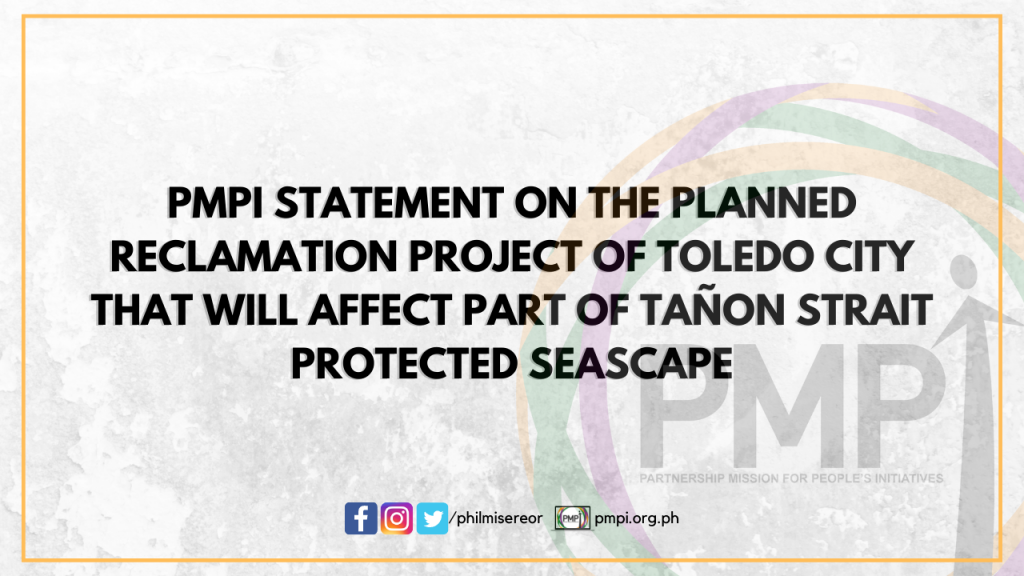The Philippine Misereor Partnership (PMPI) would like to add our voice to the long-time opposition of environmental defenders in Cebu to the reclamation project in Toledo City, Cebu. The revival of this project which was side swapped because of the “opposition of some environmental groups” and the suspension of the Mayor, should be thoroughly reviewed by the Department of Environment and Natural Resources (DENR) and should necessitate massive consultations among the stakeholders in the area given its expanse within the declared protected areas.
The area planned for reclamation falls under the Tañon Strait Protected Seascape, thus part of the National Integrated Protection Areas System of the Philippines – now the Expanded National Integrated Protection Areas System, and thus, must be protected from invasive and disturbing development projects.
The LGU of Toledo believes that the project will give income to the city and jobs to its citizens more than its tourism value. We however argue that the value of Tanon Strait’s ecosystem must be beyond the immediate financial economic valuation the planned reclamation project.
One, it covers an area of about 521,018 hectares – the biggest marine protected area in the Philippines, and 5 times larger than the more famous Tubbataha Reefs Natural Park (Ranada, 2015).
Second, Ranada (2015) writes that the Tañon Strait is home to 14 species of dolphins and whales, spinner dolphins, dwarf sperm whales, pygmy killer whales and spotted dolphins. Moreover, rare chambered nautilus, giant diamond-backed squid and critically-endangered dugong can also be found in its waters.
Also, in Tañon Strait, 70 species of fish, 20 species of crustaceans, 26 species of mangroves, and 18,830 hectares of coral reef thrive and propagate.
We again expressed our disappointment with the DENR. The agency was not created to give license to development projects, that most of the time harms the environment and people such as mining and reclamation project in this case, but primarily to ensure availability of and sustainability of the country’s natural resources through judicious use and systematic restoration or replacement, whenever possible (DENR, n.d.).
We call on the DENR to review the Environmental Impact Study of the said reclamation project, as we believe that the project belies the claims of Senator Osmeña, through Public Information Officer Roseller Layan, that there was nothing to protect under the water when she said that “What the former senator did was to order divers to conduct a survey to show there was nothing to protect under the water,” Layan said in Cebuano (Sunstar, 2020).
DENR should remember that it was created as an agency mandated to also conserve and protect the Philippine ecology. If not, DENR must be revamped. Maybe it is high time for the creation of a separate department truly dedicated to nature’s conservation and protection.
The PMPI is a social development and advocacy network working to help mining-affected communities and campaigning for the recognition of the rights of nature as a new legal framework for protecting the environment.

